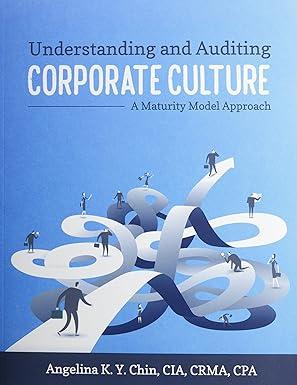Question
Section 2-4C on page 2-30 discusses tax avoidance and tax evasion and includes the quote from Judge Learned Hand Over and over again courts have
Section 2-4C on page 2-30 discusses tax avoidance and tax evasion and includes the quote from Judge Learned Hand
Over and over again courts have said that there is nothing sinister in so arranging ones affairs as to keep taxes as low as possible. Everybody does so, rich or poor; and all do right, for nobody owes any public duty to pay more than the law demands: taxes are enforced extractions, not voluntary contributions. To demand more in the name of morals is mere cant.
This brings up an interesting point, especially in todays political climate. All of the below questions center around the same central idea feel free to concentrate on one or two, to talk about the questions at a larger big picture level. These questions are just to get the conversation started.
- Is legally avoiding taxes moral?
- Just because you can use a loophole or tax strategy, should you?
- Do you think that a tax system that has loopholes favors the wealthy, why/or why not?
- Do the wealthy have a moral imperative to pay more in taxes?
Step by Step Solution
There are 3 Steps involved in it
Step: 1

Get Instant Access to Expert-Tailored Solutions
See step-by-step solutions with expert insights and AI powered tools for academic success
Step: 2

Step: 3

Ace Your Homework with AI
Get the answers you need in no time with our AI-driven, step-by-step assistance
Get Started


